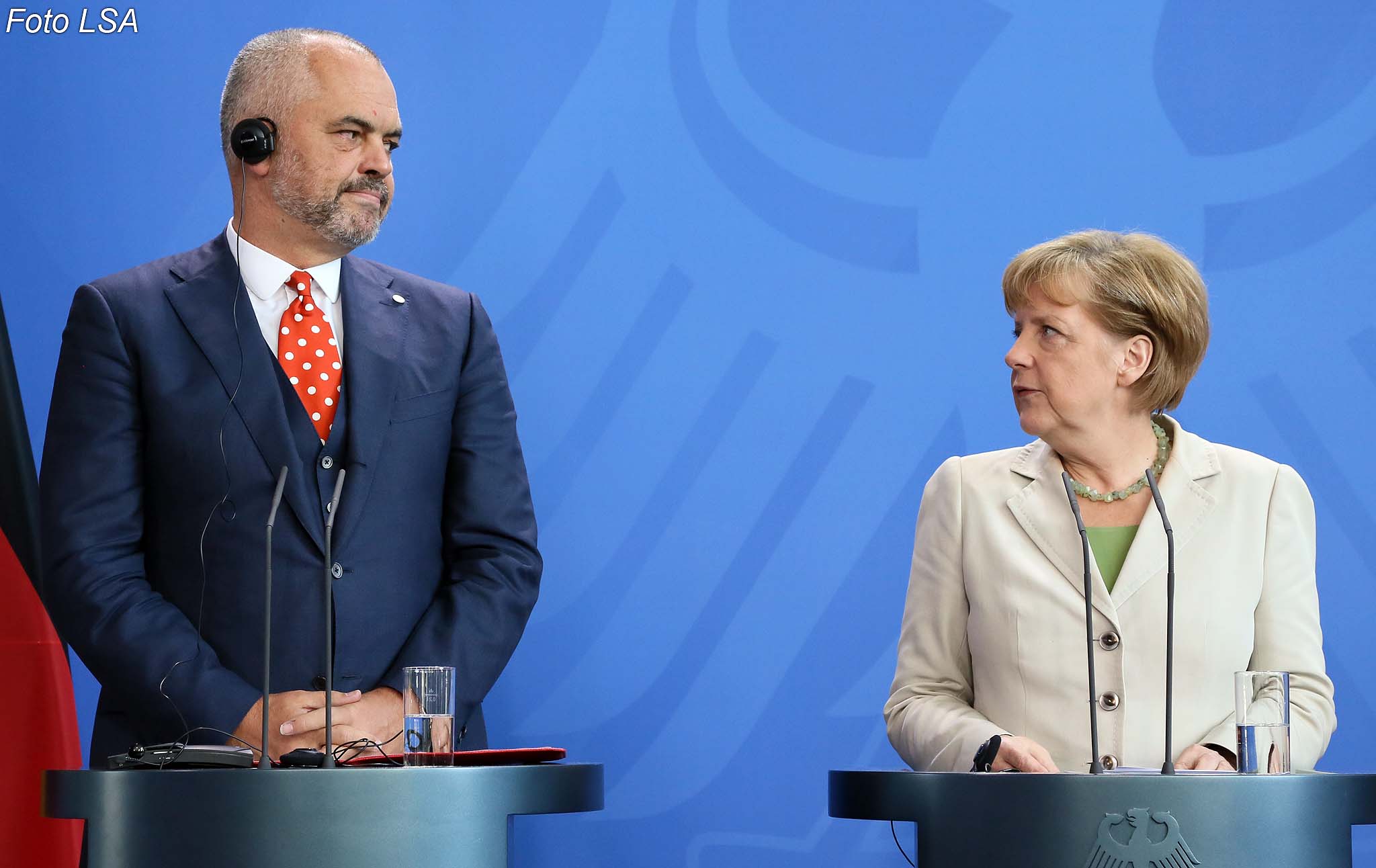
German Chancellor Angela Merkel met with Albanian Prime Minister Edi Rama in Berlin yesterday. She did not confirm the opening of accession negotiations, declaring, instead, that the German decision regarding the issue would be announced in the following days.
In a quick statement before her meeting, Merkel told the press that Albania has made progress in some directions, but a lot more progress remains to be made in others, especially the fight against crime and corruption.
Merkel’s ambiguous stance seems to be a polite way to refuse accepting that Germany, especially the Bundestag, remains sceptical of opening negotiations.
If the past can teach us anything it is that the events leading to Merkel’s declaration do not bode well for Albania’s hopes for the decision that will be announced in June at the European Council summit.
This previous week’s events concerning the German stance on the matter seem eerily similar to the ones from late 2016 concerning the previous Progress Report. Below a summary of the similarities between the series of events back then and now:
- The European Commission recommends the European Council open accession negotiations, releasing an overwhelmingly positive report on the government. The government parades this great achievement and declares that, at this point, the decision is going to depend on inter-EU politics, rather than on whether or not Albania has fulfilled the conditions set by the EU.
- Gunther Krichbaum, Chairman of the EU Affairs Commission in the German Bundestag, declares that Albania is not yet ready for the opening of the negotiations and that the German Bundestag will further review whether the conditions it had set for Albania were fulfilled or not.
- Rama, majority politicians and affiliated media outlets attack Krichbaum, denouncing him as an irrelevant MP that has little say in the decision, that rests entirely in the hands of Merkel.
- Three days after Krichbaum’s statement, Rama visits Berlin to meet with Chancellor Merkel.
- The Chancellor opts for a short statement before the meeting instead of a full-blown press conference following it.
- In her statements, Merkel steers clear of confirming that she will vote for opening negotiations, but stresses that Germany’s decision hasn’t been taken yet and will be in the following days.
- Merkel stresses that Albania has made progress in certain directions but still has a lot more work to do, especially in the fight against crime and corruption.
- Merkel does not even mention the European Commission’s report, nor its recommendation for the opening of accession negotiations.
The conclusion of these events, in 2016, was the dismissal of the Commission’s recommendation, even though Albania managed to escape official rejection, after Austria blocked the complete enlargement package because of the inclusion of Turkey.
All that remains is to hope that this time, in contrast to 2016, the German stance will not be a foreshadowing of Germany’s possible refusal to approve the opening of the negotiations, mainly as a result of a lack of progress in the fight against crime, drugs, and corruption.

